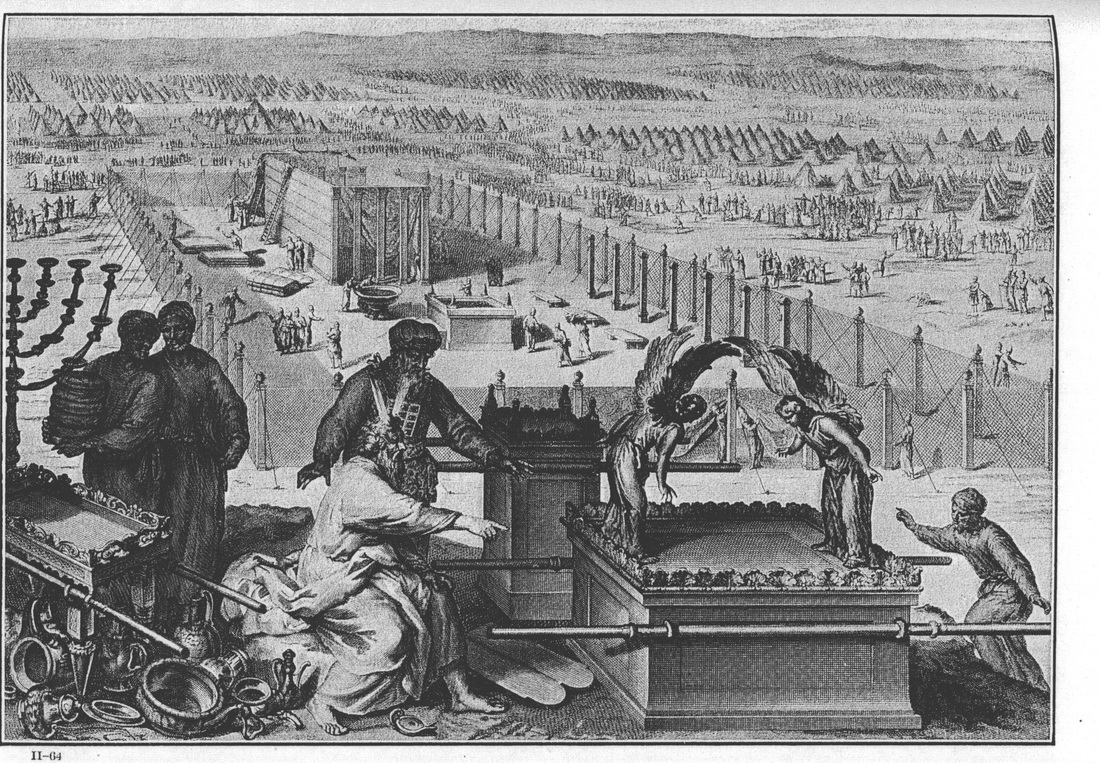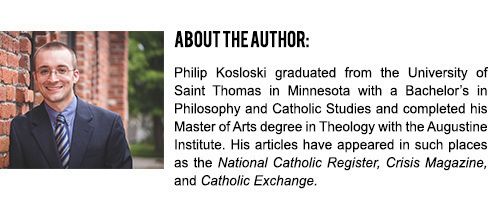
Last, but not least, sacramentals have a vital role in the liturgy of the Church. There are numerous objects used in divine worship and all of them are set-apart and blessed for their specific purposes. As we learn about these liturgical items, we will discover that everything has a purpose and is used in the liturgy to help us draw closer to Heaven.
Before we get started, it would be good to offer a brief overview of liturgical ceremonies in the Old Testament to see where our currently liturgy comes from. The Old Testament Liturgy Offering a sacrifice to God is as old as Noah, but formal liturgical practice did not begin until God led His people out into the desert with Moses. God laid out for the wandering Hebrews a very specific rule of law for offering sacrifice. All of this can be seen in great detail in the book of Deuteronomy. For starters, God desired that the Hebrews worshipped in a specific place called the “tabernacle” (which was essentially a tent dedicated to divine worship). God instructed His people to construct the following: “And let every able man among you come and make all that the Lord has commanded: the tabernacle, its tent and its covering, its hooks and its frames, its bars, its pillars, and its bases; the ark with its poles, the mercy seat, and the veil of the screen; the table with its poles and all its utensils, and the bread of the Presence; the lampstand also for the light, with its utensils and its lamps, and the oil for the light; and the altar of incense, with its poles, and the anointing oil and the fragrant incense, and the screen for the door, at the door of the tabernacle; the altar of burnt offering, with its grating of bronze, its poles, and all its utensils, the laver and its base; the hangings of the court, its pillars and its bases, and the screen for the gate of the court; the pegs of the tabernacle and the pegs of the court, and their cords; the finely wrought garments for ministering in the holy place, the holy garments for Aaron the priest, and the garments of his sons, for their service as priests.” (Exodus 35:10-19) We see in this passage numerous items that were to be dedicated or “consecrated” for the worship of God. Among other items, we see veils, utensils, bread, lamp stands, oil, incense, and priestly vestments. All of these very specific objects were meant to be “signs,”or “sacramentals,” that pointed to an underlining meaning. For example, the incense, as related later in the Psalms, was meant to represent the prayers of the people: “Let my prayer be counted as incense before thee, and the lifting up of my hands as an evening sacrifice!” (Psalm 141:2) This specific worship of God went on for centuries and was at its height during the era of Temple sacrifices in Israel. They followed God’s instructions to the letter and made sure that all of the proper objects were used. The Apostles then took what they saw at the Temple and Synagogues and adapted it to the New Covenant in Jesus Christ. This means that many of the same items were brought into Christian worship. It does not take us long to see the liturgy we experience today stems from the original worship services of the Jews and much of what we see today comes from a tradition over 2,000 years old! Now that we have a sense behind the history of sacramentals that are used in the liturgy and their biblical basis, lets examine a handful of sacramental blessings. We will highlight the primary prayers of blessing in the 1962 Roman Ritual as they are short, to the point and give us a great summary of why each item is used. Some of these blessings explicitly connect the Old Testament with the New and weave both in a harmony that encompasses all of Salvation History: BLESSING AND LAYING THE CORNER-STONE OF A CHURCH “Lord Jesus Christ, Son of the living God, who are the corner- stone hewn from the mountain-side not by the hand of man, and the foundation which cannot be moved; make firm this stone which is to be laid in your name. You who are the beginning and the end, be likewise, we pray, the beginning, the increase, and the end of this work, which is fittingly begun for your praise and glory. We ask this of you who live and reign forever and ever.” “In the faith of Jesus Christ, we lay this corner-stone on this foundation; in the name of the Father, and of the Son, and of the Holy Spirit. May the true faith flourish here, along with fear of God and brotherly love. May this place finally be devoted to prayer, to the adoration and praise of the name of Jesus Christ our Lord, who lives and reigns with the Father and the Holy Spirit, God, forever and ever.” CONSECRATION OF A PATEN AND A CHALICE “Almighty everlasting God, who instituted the laws of sacrifice, and ordered among other things that the sprinkled wheaten flour should be carried to the altar on plates of gold and silver; be pleased to bless, hallow, + and consecrate this paten (these patens), destined for the administration of the Eucharist of Jesus Christ, your Son, who for our salvation and that of all mankind chose to immolate Himself on the gibbet of the cross to you, God the Father, with whom He lives and reigns, forever and ever.” “O Lord our God, be pleased to bless + this chalice (these chalices), made by your devout people for your holy service. Bestow that same blessing which you bestowed on the hallowed chalice of your servant, Melchisedech. And what we cannot make worthy of your altars by our craft and metals, do you nonetheless make worthy by your blessing; through Christ our Lord.” BLESSING OF ALTAR-LINENS “Lord God almighty, who for forty days instructed Moses, your servant, how to make linens and sacred appointments, which even Mary wove and made for the service of the Old Covenant; be pleased to bless + these linens (this linen) made to cover and envelop the altar of your glorious Son, our Lord Jesus Christ, who lives and reigns with you forever and ever.” BLESSING OF SALT “God's creature, salt, I cast out the demon from you in the name of our Lord Jesus Christ, who said to His apostles: "You are the salt of the earth"; and through the Apostle says: "Let your speech be at all times pleasing, seasoned with salt." May you become a sacred thing…to drive away all temptations of the devil. May you be a shield for body and soul, health, protection, and a safeguard for all who use you; through Christ our Lord.” BLESSING OF PRIESTLY VESTMENTS “Almighty everlasting God, who decreed through Moses, your servant, that the vesture of high-priest, priest, and levite, used in fulfilling their ministry in your sight, should be worn to dignify and beautify the worship rendered to your holy name; mercifully heed our prayers, and be pleased, through our lowly ministry, to bless ~ these priestly vestments (this priestly vestment), bedewing them (it) with your grace, so that they (it) become hallowed and suitable for divine worship and the sacred mysteries. Let every bishop, priest, or deacon clothed in these sacred vestments (this sacred vestment) be strengthened and defended from all assault or temptation of wicked spirits; let them perform and celebrate your mysteries reverently and well; and let them always carry out their ministry in a devout and pleasing manner; through Christ our Lord.” BLESSING OF CANDLES “Lord Jesus Christ, Son of the living God, bless + these candles at our lowly request. Endow them, Lord, by the power of the holy + cross, with a blessing from on high, you who gave them to mankind in order to dispel darkness. Let the blessing that they receive from the sign of the holy + cross be so effectual that, wherever they are lighted or placed, the princes of darkness may depart in trembling from all these places, and flee in fear, along with all their legions, and never more dare to disturb or molest those who serve you, the almighty God, who live and reign forever and ever.” BLESSING OF A CHURCH ORGAN “God, who by Moses, your servant, ordered the sound of trumpets to accompany the sacrifices offered to your name, and willed that the children of Israel sing praise to your name with trumpets and timbrels; we beg you to bless + this organ which we dedicate to your service. And grant that your faithful who are gladdened with holy songs here on earth may attain everlasting gladness in heaven; through Christ our Lord.” We see in these blessings the great beauty of sacramentals in the liturgy and understand that everything we use is meant for a purpose and each item is meant to bring us closer to Heaven. Read the Entire Series
0 Comments
Your comment will be posted after it is approved.
Leave a Reply. |
MASS SCHEDULE
Tuesday - Friday: 8:00 AM Saturday: 4:00 PM Sunday: 8:00 AM & 10:00 AM RECONCILIATION
Saturday: 3:15 - 3:45 PM OFFICE HOURS
Monday - Thursday: 8:30 AM – 5:00 PM Friday: 8:30 AM – 12:30 PM Stay Connected with Our ParishWelcome from Our PastorWelcome to Christ the King Catholic Church! Ever since 1938 this parish has been assisting souls in their quest for deeper union with God. Our mission statement is essentially found in the stained glass window above the main altar: “For Christ our King.” Insofar as God made us and we belong to Him, we have come to... Read More
Archives
February 2021
Categories
All
|
Copyright © 2024 Christ the King Parish. All Rights Reserved.
Mailing address: 306 S. LaSalle St, Spencer, WI 54479
(715) 659-4480



 RSS Feed
RSS Feed